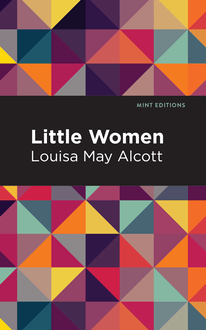-
 Univers
Univers
-
 Ebooks
Ebooks
-
 Livres audio
Livres audio
-
 Presse
Presse
-
 Podcasts
Podcasts
-
 BD
BD
-
 Documents
Documents
-
- Cours
- Révisions
- Ressources pédagogiques
- Sciences de l’éducation
- Manuels scolaires
- Langues
- Travaux de classe
- Annales de BEP
- Etudes supérieures
- Maternelle et primaire
- Fiches de lecture
- Orientation scolaire
- Méthodologie
- Corrigés de devoir
- Annales d’examens et concours
- Annales du bac
- Annales du brevet
- Rapports de stage
La lecture à portée de main
Vous pourrez modifier la taille du texte de cet ouvrage
Découvre YouScribe en t'inscrivant gratuitement
Je m'inscrisDécouvre YouScribe en t'inscrivant gratuitement
Je m'inscrisEn savoir plus
Vous pourrez modifier la taille du texte de cet ouvrage
En savoir plus

Description
Villette (1853) is a novel by English writer Charlotte Brontë. It was the third and final novel she published in her lifetime, followed only by The Professor, her posthumously released first novel which was largely reconceived and rewritten as Villette. Inspired by Brontë’s experience traveling and teaching English in Brussels, where she went at the age of 26 with her sister Emily before returning alone the following year, Villette is the story of an Englishwoman abroad and contains the themes of loneliness, secrecy, romance, and tragedy which circulate throughout much of her work.
Following a family tragedy, Lucy Snowe becomes employed as a caregiver by an elderly woman named Miss Marchmont, who treats her kindly and shares stories of life and lost love. When Miss Marchmont dies, Lucy—now without family, home, or employment—decides to leave England for Labassecour, a fictional country based on Brontë’s experience of Belgium. She is hired to teach English at a boarding school in the city of Villette, where she meets a strangely familiar English doctor and falls in love with M. Paul Emanuel, a local professor. Although he is a widower, M. Paul faces pressure from family members and religious authorities alike, and is forced to choose between a life of social acceptance and a life with the woman he loves. Amidst these circumstances, and haunted by repeated encounters with a nun rumored to be a ghost, Lucy Snowe must rely on her wits and courage as she suffers through not only intense loneliness, but a lack of control over the events which shape her life.
Charlotte Brontë’s Villette is a compelling gothic novel which explores the psychological effects of a lack of agency on its protagonist while illuminating the horrors which loom over everyday life.
With a beautifully designed cover and professionally typeset manuscript, this edition of Charlotte Brontë’s Villette is a classic of English literature reimagined for modern readers.
Sujets
Informations
| Publié par | Mint Editions |
| Date de parution | 01 décembre 2020 |
| Nombre de lectures | 0 |
| EAN13 | 9781513273648 |
| Langue | English |
| Poids de l'ouvrage | 1 Mo |
Informations légales : prix de location à la page 0,0500€. Cette information est donnée uniquement à titre indicatif conformément à la législation en vigueur.
Extrait
Villette
Charlotte Brontë
Villette was first published in 1853.
This edition published by Mint Editions 2020.
ISBN 9781513268644 | E-ISBN 9781513273648
Published by Mint Editions®
minteditionbooks.com
Publishing Director: Jennifer Newens
Design & Production: Rachel Lopez Metzger
Typesetting: Westchester Publishing Services
C ONTENTS 1. B RETTON 2. P AULINA 3. T HE P LAYMATES 4. M ISS M ARCHMONT 5. T URNING A N EW L EAF 6. L ONDON 7. V ILLETTE 8. M ADAME B ECK 9. I SIDORE 10. D R . J OHN 11. T HE P ORTRESS ’ S C ABINET 12. T HE C ASKET 13. A S NEEZE O UT OF S EASON 14. T HE F ÊTE 15. T HE L ONG V ACATION 16. A ULD L ANG S YNE 17. L A T ERRASSE 18. W E Q UARREL 19. T HE C LEOPATRA 20. T HE C ONCERT 21. R EACTION 22. T HE L ETTER 23. V ASHTI 24. M. DE B ASSOMPIERRE 25. T HE L ITTLE C OUNTESS 26. A B URIAL 27. T HE H ÔTEL C RÉCY 28. T HE W ATCHGUARD 29. M ONSIEUR ’ S F ÊTE 30. M. P AUL 31. T HE D RYAD 32. T HE F IRST L ETTER 33. M. P AUL K EEPS HIS P ROMISE 34. M ALEVOLA 35. F RATERNITY 36. T HE A PPLE OF D ISCORD 37. S UNSHINE 38. C LOUD 39. O LD AND N EW A CQUAINTANCE 40. T HE H APPY P AIR 41. F AUBOURG C LOTILDE 42. F INIS
Chapter 1
B RETTON
M y godmother lived in a handsome house in the clean and ancient town of Bretton. Her husband’s family had been residents there for generations, and bore, indeed, the name of their birthplace—Bretton of Bretton: whether by coincidence, or because some remote ancestor had been a personage of sufficient importance to leave his name to his neighbourhood, I know not.
When I was a girl I went to Bretton about twice a year, and well I liked the visit. The house and its inmates specially suited me. The large peaceful rooms, the well-arranged furniture, the clear wide windows, the balcony outside, looking down on a fine antique street, where Sundays and holidays seemed always to abide—so quiet was its atmosphere, so clean its pavement—these things pleased me well.
One child in a household of grown people is usually made very much of, and in a quiet way I was a good deal taken notice of by Mrs. Bretton, who had been left a widow, with one son, before I knew her; her husband, a physician, having died while she was yet a young and handsome woman.
She was not young, as I remember her, but she was still handsome, tall, well-made, and though dark for an Englishwoman, yet wearing always the clearness of health in her brunette cheek, and its vivacity in a pair of fine, cheerful black eyes. People esteemed it a grievous pity that she had not conferred her complexion on her son, whose eyes were blue—though, even in boyhood, very piercing—and the colour of his long hair such as friends did not venture to specify, except as the sun shone on it, when they called it golden. He inherited the lines of his mother’s features, however; also her good teeth, her stature (or the promise of her stature, for he was not yet full-grown), and, what was better, her health without flaw, and her spirits of that tone and equality which are better than a fortune to the possessor.
In the autumn of the year _____ I was staying at Bretton; my godmother having come in person to claim me of the kinsfolk with whom was at that time fixed my permanent residence. I believe she then plainly saw events coming, whose very shadow I scarce guessed; yet of which the faint suspicion sufficed to impart unsettled sadness, and made me glad to change scene and society.
Time always flowed smoothly for me at my godmother’s side; not with tumultuous swiftness, but blandly, like the gliding of a full river through a plain. My visits to her resembled the sojourn of Christian and Hopeful beside a certain pleasant stream, with “green trees on each bank, and meadows beautified with lilies all the year round.” The charm of variety there was not, nor the excitement of incident; but I liked peace so well, and sought stimulus so little, that when the latter came I almost felt it a disturbance, and wished rather it had still held aloof.
One day a letter was received of which the contents evidently caused Mrs. Bretton surprise and some concern. I thought at first it was from home, and trembled, expecting I know not what disastrous communication: to me, however, no reference was made, and the cloud seemed to pass.
The next day, on my return from a long walk, I found, as I entered my bedroom, an unexpected change. In, addition to my own French bed in its shady recess, appeared in a corner a small crib, draped with white; and in addition to my mahogany chest of drawers, I saw a tiny rosewood chest. I stood still, gazed, and considered.
“Of what are these things the signs and tokens?” I asked. The answer was obvious. “A second guest is coming: Mrs. Bretton expects other visitors.”
On descending to dinner, explanations ensued. A little girl, I was told, would shortly be my companion: the daughter of a friend and distant relation of the late Dr. Bretton’s. This little girl, it was added, had recently lost her mother; though, indeed, Mrs. Bretton ere long subjoined, the loss was not so great as might at first appear. Mrs. Home (Home it seems was the name) had been a very pretty, but a giddy, careless woman, who had neglected her child, and disappointed and disheartened her husband. So far from congenial had the union proved, that separation at last ensued—separation by mutual consent, not after any legal process. Soon after this event, the lady having over-exerted herself at a ball, caught cold, took a fever, and died after a very brief illness. Her husband, naturally a man of very sensitive feelings, and shocked inexpressibly by too sudden communication of the news, could hardly, it seems, now be persuaded but that some over-severity on his part—some deficiency in patience and indulgence—had contributed to hasten her end. He had brooded over this idea till his spirits were seriously affected; the medical men insisted on travelling being tried as a remedy, and meanwhile Mrs. Bretton had offered to take charge of his little girl. “And I hope,” added my godmother in conclusion, “the child will not be like her mamma; as silly and frivolous a little flirt as ever sensible man was weak enough to marry. For,” said she, “Mr. Home is a sensible man in his way, though not very practical: he is fond of science, and lives half his life in a laboratory trying experiments—a thing his butterfly wife could neither comprehend nor endure; and indeed” confessed my godmother, “I should not have liked it myself.”
In answer to a question of mine, she further informed me that her late husband used to say, Mr. Home had derived this scientific turn from a maternal uncle, a French savant; for he came, it seems; of mixed French and Scottish origin, and had connections now living in France, of whom more than one wrote de before his name, and called himself noble.
That same evening at nine o’clock, a servant was despatched to meet the coach by which our little visitor was expected. Mrs. Bretton and I sat alone in the drawing-room waiting her coming; John Graham Bretton being absent on a visit to one of his schoolfellows who lived in the country. My godmother read the evening paper while she waited; I sewed. It was a wet night; the rain lashed the panes, and the wind sounded angry and restless.
“Poor child!” said Mrs. Bretton from time to time. “What weather for her journey! I wish she were safe here.”
A little before ten the door-bell announced Warren’s return. No sooner was the door opened than I ran down into the hall; there lay a trunk and some band-boxes, beside them stood a person like a nurse-girl, and at the foot of the staircase was Warren with a shawled bundle in his arms.
“Is that the child?” I asked.
“Yes, miss.”
I would have opened the shawl, and tried to get a peep at the face, but it was hastily turned from me to Warren’s shoulder.
“Put me down, please,” said a small voice when Warren opened the drawing-room door, “and take off this shawl,” continued the speaker, extracting with its minute hand the pin, and with a sort of fastidious haste doffing the clumsy wrapping. The creature which now appeared made a deft attempt to fold the shawl; but the drapery was much too heavy and large to be sustained or wielded by those hands and arms. “Give it to Harriet, please,” was then the direction, “and she can put it away.” This said, it turned and fixed its eyes on Mrs. Bretton.
“Come here, little dear,” said that lady. “Come and let me see if you are cold and damp: come and let me warm you at the fire.”
The child advanced promptly. Relieved of her wrapping, she appeared exceedingly tiny; but was a neat, completely-fashioned little figure, light, slight, and straight. Seated on my godmother’s ample lap, she looked a mere doll; her neck, delicate as wax, her head of silky curls, increased, I thought, the resemblance.
Mrs. Bretton talked in little fond phrases as she chafed the child’s hands, arms, and feet; first she was considered with a wistful gaze, but soon a smile answered her. Mrs. Bretton was not generally a caressing woman: even with her deeply-cherished son, her manner was rarely sentimental, often the reverse; but when the small stranger smiled at her, she kissed it, asking, “What is my little one’s name?”
“Missy.”
“But besides Missy?”
“Polly, papa calls her.”
“Will Polly be content to live with me?”
“Not always ; but till papa comes home. Papa is gone away.” She shook her head expressively.
“He will return to Polly, or send for her.”
“Will he, ma’am? Do you know he will?”
“I think so.”
“But Harriet thinks not: at least not for a long while. He is ill.”
Her eyes filled. She drew her hand from Mrs. Bretton’s and made a movement to leave her lap; it was at first resisted, but she said—“Please, I wish to go: I can sit on a stool.”
She was allowed to slip down from the knee, and taking a footstool, she carried it to a corner where the sha
-
 Univers
Univers
-
 Ebooks
Ebooks
-
 Livres audio
Livres audio
-
 Presse
Presse
-
 Podcasts
Podcasts
-
 BD
BD
-
 Documents
Documents
-
Jeunesse
-
Littérature
-
Ressources professionnelles
-
Santé et bien-être
-
Savoirs
-
Education
-
Loisirs et hobbies
-
Art, musique et cinéma
-
Actualité et débat de société
-
Jeunesse
-
Littérature
-
Ressources professionnelles
-
Santé et bien-être
-
Savoirs
-
Education
-
Loisirs et hobbies
-
Art, musique et cinéma
-
Actualité et débat de société
-
Actualités
-
Lifestyle
-
Presse jeunesse
-
Presse professionnelle
-
Pratique
-
Presse sportive
-
Presse internationale
-
Culture & Médias
-
Action et Aventures
-
Science-fiction et Fantasy
-
Société
-
Jeunesse
-
Littérature
-
Ressources professionnelles
-
Santé et bien-être
-
Savoirs
-
Education
-
Loisirs et hobbies
-
Art, musique et cinéma
-
Actualité et débat de société
- Cours
- Révisions
- Ressources pédagogiques
- Sciences de l’éducation
- Manuels scolaires
- Langues
- Travaux de classe
- Annales de BEP
- Etudes supérieures
- Maternelle et primaire
- Fiches de lecture
- Orientation scolaire
- Méthodologie
- Corrigés de devoir
- Annales d’examens et concours
- Annales du bac
- Annales du brevet
- Rapports de stage













